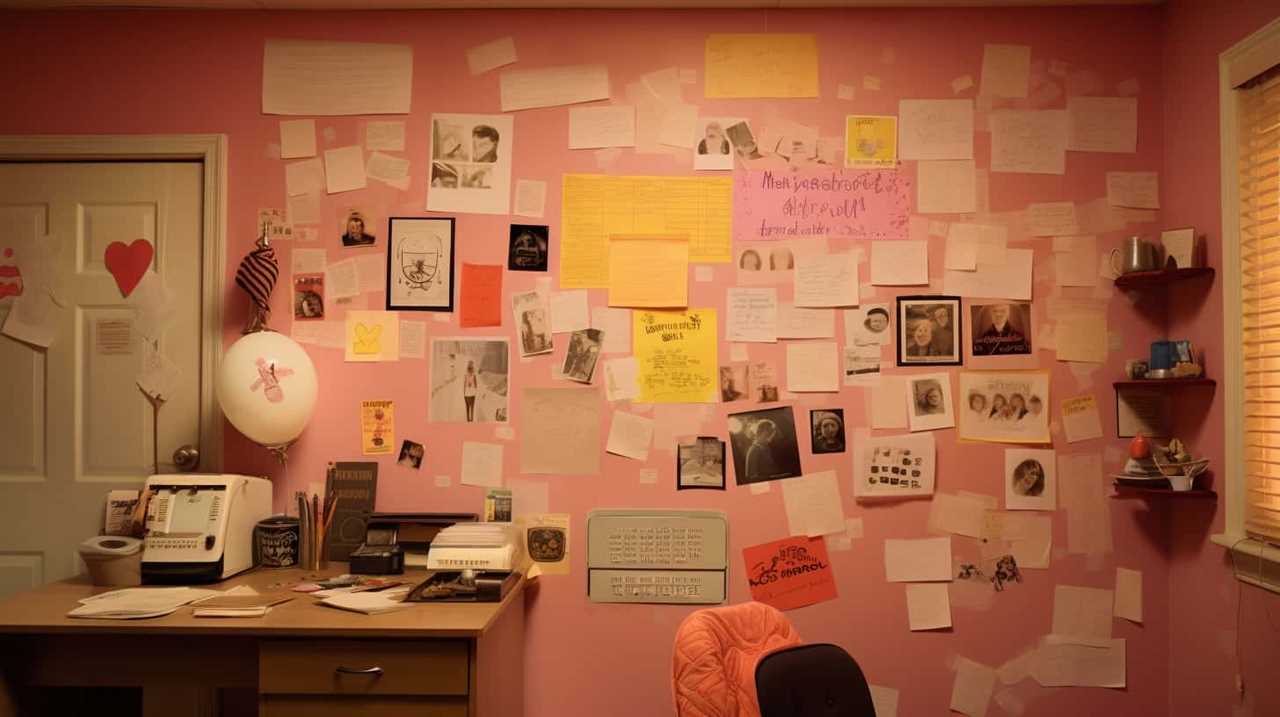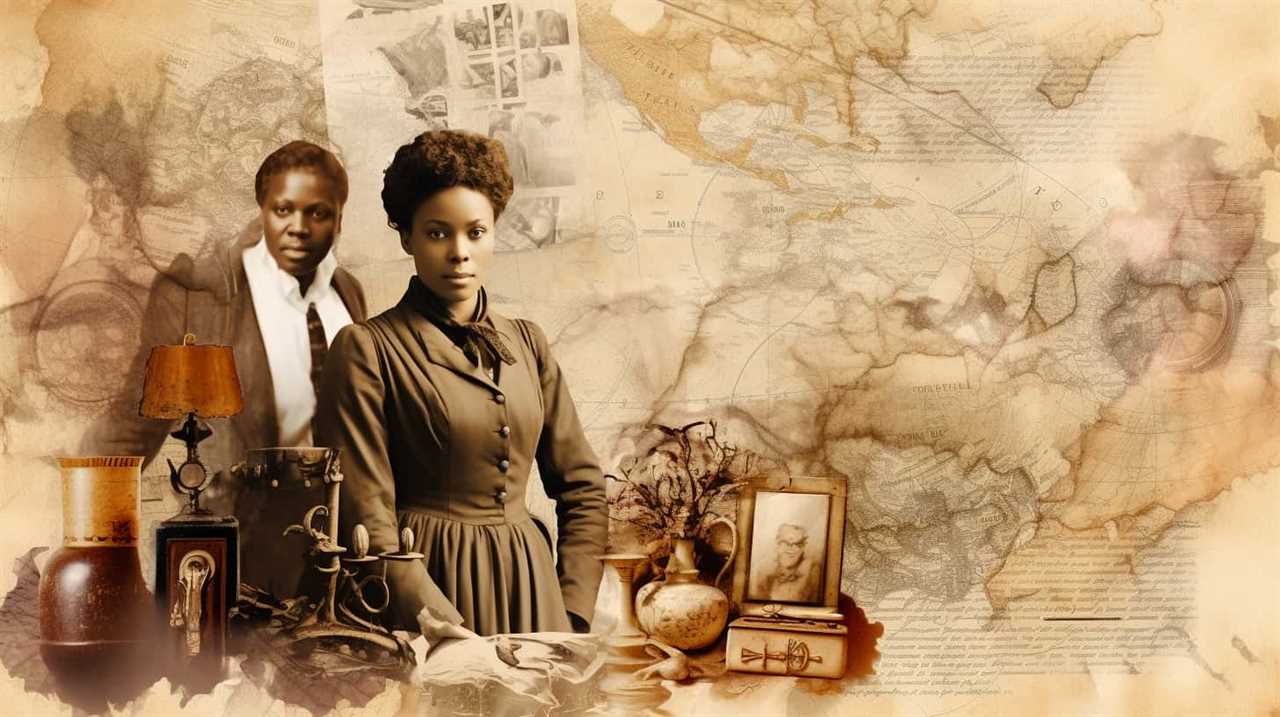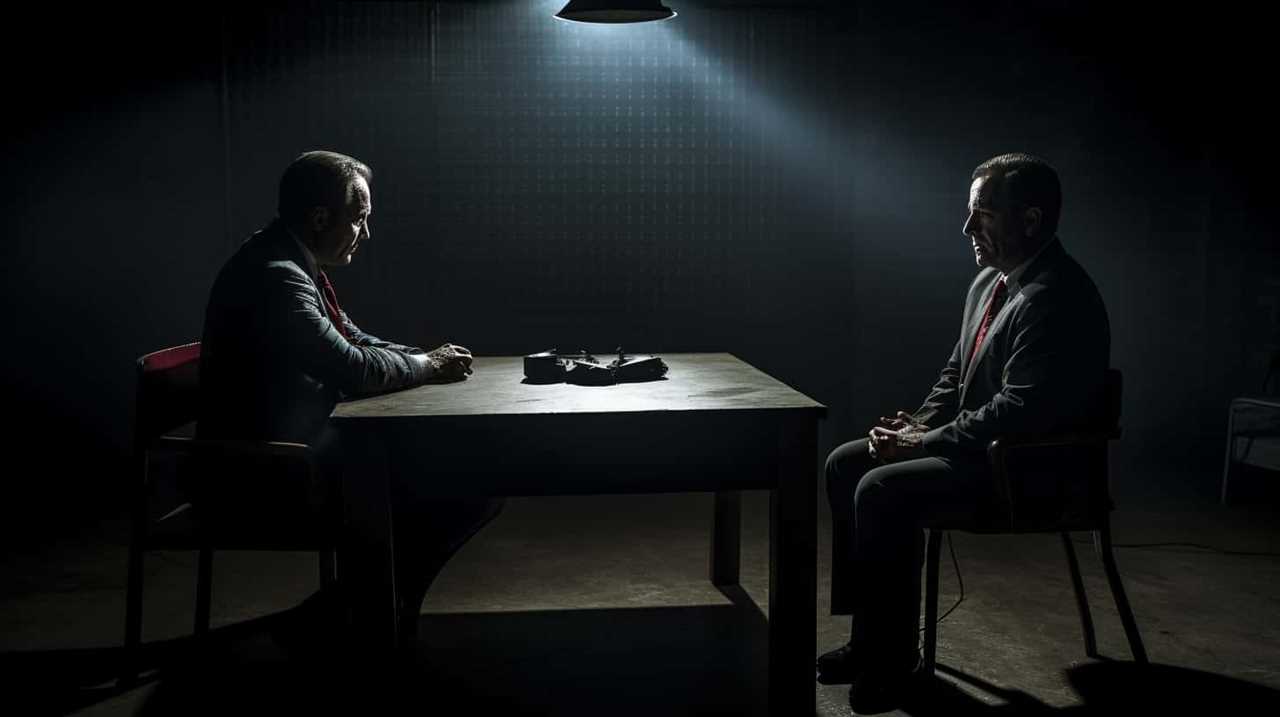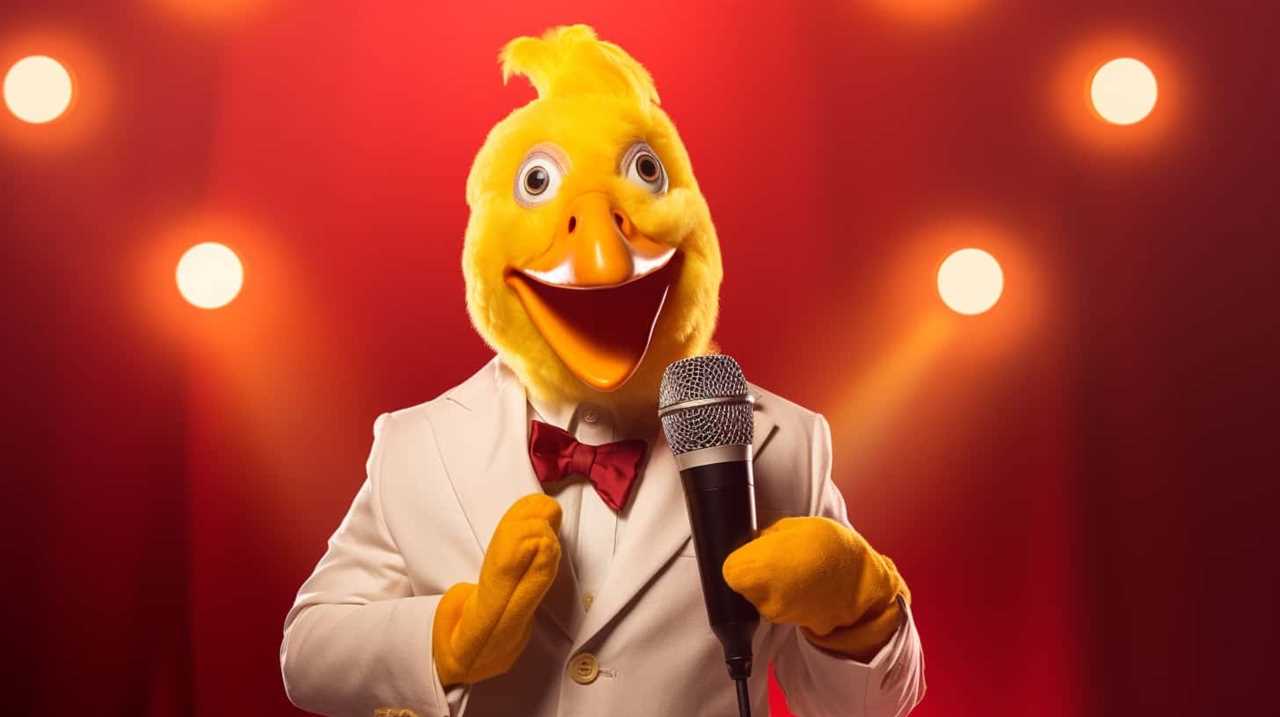Prepare to reminisce as we delve into seven sitcom catchphrases that shaped a generation. These memorable lines have become a part of our cultural vocabulary, each one conjuring a distinct image and igniting feelings of nostalgia.
From Urkel’s endearing ‘Did I do that?’ to Joey Tribbiani’s flirtatious ‘How you doin’?’ these catchphrases have left an indelible mark on the way we communicate. With language that is both familiar and innovative, these catchphrases have become a part of our everyday conversations, effortlessly capturing the essence of the characters and the shows they came from.
So sit back, relax, and get ready to relive the moments that made us laugh, cry, and quote along with our favorite sitcoms.
Key Takeaways
- Urkel’s catchphrase from ‘Family Matters’ and Joey Tribbiani’s flirtatious line from ‘Friends’ have become iconic and memorable in television history.
- Seinfeld’s shorthand for skipping details, such as ‘yada, yada, yada’, has had a significant impact on language and slang, highlighting everyday absurdity and triviality.
- Catchphrases have revolutionized sitcoms, influencing language and shaping communication, adding humor to everyday interactions.
- Seinfeld’s catchphrase, in particular, has had a lasting cultural significance, extending beyond television and becoming a concise way to skip unnecessary details.
Did I Do That?" – Urkel’s Iconic Catchphrase
We can’t discuss sitcom catchphrases without mentioning ‘Did I Do That?’ – Urkel’s iconic catchphrase. This simple yet unforgettable line from the hit sitcom ‘Family Matters’ had a profound cultural impact and a comedic influence that resonated with audiences around the world.

Steve Urkel, portrayed by Jaleel White, was a lovable and nerdy character who constantly found himself in awkward situations. Whenever he caused a mishap or made a mistake, he’d innocently utter those four words, ‘Did I Do That?’ The catchphrase quickly became a part of popular culture, often imitated and referenced in various forms of media.
Urkel’s catchphrase not only brought laughter to millions of viewers but also served as a reminder of the universal human experience of making mistakes. The line became a symbol of self-deprecating humor and became synonymous with Urkel’s endearing personality.
The cultural impact of ‘Did I Do That?’ extended far beyond the show itself. It became a catchphrase that people used in their everyday lives, further solidifying its place in pop culture history. Its comedic influence can still be felt today, as it continues to be referenced and recognized as one of the most memorable catchphrases in sitcom history.
Now, let’s transition to the next iconic catchphrase, ‘How you doin’?’ – Joey Tribbiani’s flirtatious line from the beloved sitcom ‘Friends’.

How You Doin’?" – Joey Tribbiani’s Flirtatious Line
Continuing the exploration of iconic sitcom catchphrases, let’s delve into ‘How You Doin’?’ – Joey Tribbiani’s flirtatious line from the beloved sitcom ‘Friends’. This catchphrase, uttered by the lovable ladies’ man Joey Tribbiani, has become one of the most memorable lines in television history. It perfectly captures Joey’s charismatic personality and his playful approach to flirting.
Joey Tribbiani’s iconic phrase, "How You Doin’?" has had a significant cultural impact. It has not only become a popular reference in pop culture but has also been adopted by people in real-life situations. The line has become a way to break the ice and charm someone, making it a go-to phrase for many.
To evoke an emotional response in the audience, let’s take a look at the impact of Joey Tribbiani’s catchphrase through a table:
| Emotion | Reaction |
|---|---|
| Amusement | Laughter |
| Nostalgia | Fondness |
| Connection | Relatability |
The table showcases the range of emotions that Joey Tribbiani’s catchphrase evokes. It brings amusement through its comedic timing, nostalgia for the beloved show ‘Friends’, and a sense of connection as fans can relate to the character’s charm and charisma.

Joey Tribbiani’s flirtatious line, "How You Doin’?" has truly left a lasting mark on popular culture. Its cultural impact is a testament to the power of catchphrases in defining a generation.
Yada, Yada, Yada" – Seinfeld’s Shorthand for Skipping Details
You know that feeling when you’re having a conversation and someone starts skipping all the important details?
Well, Seinfeld’s ‘Yada, Yada, Yada’ catchphrase captures that perfectly.
It’s become a shorthand for glossing over the specifics and leaving the audience to fill in the blanks.

But beyond its comedic value, this catchphrase also reflects the cultural significance of our need for brevity and the impact that catchphrases can have on a generation.
Impact of Catchphrases
Seinfeld’s use of the catchphrase ‘Yada, yada, yada’ revolutionized sitcoms, providing a shorthand for skipping over unnecessary details. This catchphrase became a cultural phenomenon, leaving a lasting impact on pop culture and influencing language and slang. The phrase quickly gained popularity and entered everyday conversations, becoming a way to summarize or dismiss unimportant information. It perfectly captured the essence of Seinfeld’s humor, highlighting the absurdity and triviality of everyday life. Its simplicity and versatility allowed it to be used in various contexts, making it a memorable and widely recognized catchphrase. To better understand its impact, let’s take a look at a table showcasing some of the most iconic catchphrases from sitcoms throughout the years:
| Sitcom | Catchphrase | Meaning/Usage |
|---|---|---|
| Seinfeld | "Yada, yada, yada" | Skipping over details or summarizing unimportant information |
| Friends | "How you doin’?" | Flirty greeting |
| The Big Bang Theory | "Bazinga!" | Used to punctuate a practical joke or prank |
These catchphrases have become part of our cultural lexicon, shaping the way we communicate and adding an extra layer of humor to our conversations. Seinfeld’s ‘Yada, yada, yada’ is a prime example of how a simple phrase can leave a lasting impact on both television and society.
Cultural Significance of Shorthand
We can explore the cultural significance of shorthand by examining the impact of Seinfeld’s catchphrase ‘Yada, yada, yada’, which revolutionized sitcoms and provided a concise way to skip over unnecessary details. This shorthand became an iconic part of the show, and its cultural influence extended far beyond the television screen.

Here’s a closer look at why Seinfeld’s use of shorthand was so significant:
- Streamlining storytelling: ‘Yada, yada, yada’ allowed Seinfeld to condense lengthy narratives into a few simple words, making the show faster paced and more efficient.
- Engaging the audience: The catchphrase quickly became a cultural phenomenon, with viewers eagerly waiting for its appearance in each episode.
- Symbol of the era: ‘Yada, yada, yada’ captured the essence of the 90s, a time when people were increasingly seeking brevity and instant gratification.
- Evolution of catchphrases: Seinfeld’s shorthand paved the way for other sitcoms to adopt similar techniques, shaping the future of television comedy.
The evolution of catchphrases, like ‘Yada, yada, yada’, reflects our desire for innovation and concise storytelling in the entertainment industry.
D’oh!" – Homer Simpson’s Exclamation of Frustration
Exclaiming frustration with a simple ‘D’oh!’, Homer Simpson’s catchphrase has become an iconic representation of exasperation for a generation of sitcom viewers. Its cultural impact and comedic significance can’t be overstated.
The genius of ‘D’oh!’ lies in its simplicity. With just one syllable, Homer captures the essence of frustration, annoyance, and regret. The catchphrase has transcended the realm of television and has become a part of everyday language, used by people of all ages to express their exasperation in a lighthearted manner.
Homer’s exclamation has become so ingrained in popular culture that it has been added to the Oxford English Dictionary. It has been featured on t-shirts, mugs, and countless memes. It has even been adopted by other TV shows and movies, further solidifying its place in the comedic lexicon.
The brilliance of ‘D’oh!’ lies in its versatility. It can be used in a variety of situations, making it relatable to a wide audience. Whether it’s a minor inconvenience or a major blunder, Homer’s catchphrase perfectly captures the frustration we all feel from time to time.
As we transition into the next section about ‘bazinga!’ – The Big Bang Theory’s Sheldon Cooper’s signature prank line, we can see how catchphrases like ‘D’oh!’ have become an integral part of sitcom culture, adding humor and familiarity to our favorite shows.
Bazinga!" – the Big Bang Theory’s Sheldon Cooper’s Signature Prank Line
Transitioning from Homer Simpson’s iconic catchphrase, ‘D’oh!’, we now delve into the realm of ‘Bazinga!’ – the Big Bang Theory’s Sheldon Cooper’s signature prank line. As catchphrases continue to captivate audiences, it’s worth exploring the psychology behind their popularity and the evolution of sitcom catchphrases. Here are four key insights:

- Instant Recognition: Catchphrases like ‘Bazinga!’ become ingrained in our cultural lexicon because they’re instantly recognizable. They serve as shorthand for a character or show, creating a sense of familiarity and connection.
- Emotional Resonance: Catchphrases often evoke specific emotions or memories. ‘Bazinga!’ triggers laughter, as it’s closely associated with Sheldon’s mischievous pranks. This emotional resonance keeps the catchphrase alive long after the show ends.
- Memorable Delivery: The way a catchphrase is delivered plays a crucial role in its success. Jim Parsons’ impeccable timing and unique intonation when saying ‘Bazinga!’ adds to its comedic impact, making it memorable and enjoyable to repeat.
- Cultural Influence: Catchphrases transcend the show they originate from and become part of popular culture. ‘Bazinga!’ has been embraced by fans worldwide, appearing on merchandise, in memes, and even inspiring spin-off catchphrases.
The psychology behind catchphrases and the evolution of sitcom catchphrases illustrate the power of language and the lasting impact of memorable lines. ‘Bazinga!’ will forever be etched in our minds as a playful reminder of Sheldon Cooper’s comedic genius.
What’s the Deal With…" – Seinfeld’s Opening Line for Comedic Observations
Seinfeld’s iconic opening line, ‘What’s the Deal With…’, sets the stage for the show’s comedic observations. This simple phrase, uttered by Jerry Seinfeld himself, became a signature catchphrase that encapsulated the essence of the show. It served as a comedic device, allowing Seinfeld to delve into various topics and dissect them with razor-sharp wit and humor.
The impact of this opening line can’t be overstated. It became a cultural phenomenon, sparking countless imitations and parodies. Seinfeld’s ability to take mundane, everyday situations and turn them into comedy gold was unparalleled. Whether he was pondering the absurdity of airplane food, the etiquette of public transportation, or the perplexing nature of relationships, Seinfeld’s observations struck a chord with audiences everywhere.
But it wasn’t just the content of Seinfeld’s observations that made this opening line so memorable. It was also the linguistic impact it had. The use of the phrase ‘What’s the Deal With…’ became synonymous with Seinfeld’s unique brand of humor. It became a shorthand for comedic commentary, a way to identify and categorize similar styles of comedy.

Dyn-O-Mite!" – J.J. Evans’ Enthusiastic Exclamation on Good Times
Moving on to another iconic sitcom catchphrase, we can’t help but get excited about ‘Dyn-O-Mite!’ – J.J. Evans’ enthusiastic exclamation on Good Times. This catchphrase, uttered by actor Jimmie Walker’s character J.J. Evans, became a cultural phenomenon in the 1970s and left a lasting impact on popular culture. Let’s explore the evolution of catchphrases in sitcoms and the impact they’ve had on our society.
- Memorable and relatable: ‘Dyn-O-Mite!’ resonated with audiences because it captured the exuberance and energy of youth. It became a rallying cry for people seeking empowerment and a way to express their enthusiasm.
- Cultural significance: The catchphrase not only reflected the spirit of the 1970s, but it also became a symbol of African-American pride and resilience. It showcased the Evans family’s ability to find joy and humor in the face of adversity.
- Catchphrase legacy: ‘Dyn-O-Mite!’ has transcended Good Times and has been referenced and parodied in various forms of media, from movies to commercials. It has become a part of our collective lexicon, representing an era of television that embraced catchphrases as a form of comedic expression.
- Influence on future sitcoms: The success of ‘Dyn-O-Mite!’ paved the way for sitcoms to incorporate catchphrases as a marketing tool and a way to connect with audiences. It set a precedent for sitcoms to create memorable catchphrases that would become synonymous with their shows.
The evolution of catchphrases in sitcoms, exemplified by ‘Dyn-O-Mite!’, has had a profound impact on popular culture. These catchphrases continue to resonate with audiences, serving as reminders of the power of humor and connection in our lives.
Frequently Asked Questions
Can You Provide Some Background Information on the Character Urkel and His Catchphrase "Did I Do That?"
Did we do that? We’re talking about Urkel and his famous catchphrase. It’s amazing how one character and his catchphrase can have such a huge impact on popular culture and influence audience reception of sitcoms.
How Did the Catchphrase "How You Doin’?" Become Synonymous With Joey Tribbiani’s Character on Friends?
How did Joey Tribbiani’s catchphrase ‘how you doin’?’ become so popular on Friends? It perfectly encapsulated his confident yet clueless charm, and its frequent use throughout the series solidified its iconic status.

What Is the Significance of the Catchphrase "Yada, Yada, Yada" in Seinfeld and How Did It Become so Popular?
The catchphrase ‘yada, yada, yada’ in Seinfeld holds immense significance and became popular due to its clever and relatable use. It’s just like the impact ‘how you doin’?’ had on Joey Tribbiani’s character in Friends.
Why Is Homer Simpson’s Exclamation of Frustration, "D’oh!", Considered Iconic in the World of Sitcoms?
Homer Simpson’s iconic catchphrase ‘d’oh!’ has become an indelible part of pop culture. Its evolution and popularity exemplify the impact sitcom catchphrases can have. It’s a testament to the power of simple, relatable expressions that resonate with audiences.
Can You Explain the Context and Meaning Behind Sheldon Cooper’s Signature Prank Line, "Bazinga!", on the Big Bang Theory?
Bazinga! Sheldon Cooper’s catchphrase on The Big Bang Theory has become synonymous with his playful pranks. It’s his way of letting everyone know that he’s pulled off another clever trick. Did I do that? Well, Urkel certainly did, and his catchphrase became a cultural phenomenon too.
What Makes These Sitcom Catchphrases so Iconic and Memorable?
From “How you doin’?” to “Did I do that?”, iconic sitcom catchphrases have a way of sticking in our minds long after the show has ended. These memorable lines become ingrained in pop culture and are often a reflection of the lovable characters who uttered them.
Conclusion
In conclusion, these sitcom catchphrases have truly become iconic and have left a lasting impact on pop culture. Just hearing phrases like ‘Did I do that?’ or ‘How you doin’?’ instantly brings to mind beloved characters and hilarious moments.
They’ve become a part of our lexicon and a visual representation of the wit and humor of these shows. So the next time you find yourself exclaiming ‘D’oh!’ or saying ‘Bazinga!’, remember that you’re not just quoting a catchphrase, you’re channeling a whole generation of laughter and entertainment.
Lauren’s talent in writing is matched by her passion for storytelling. Her love for books and deep understanding of culture and entertainment add a distinct flavor to her work. As our media and press contact, Lauren skillfully bridges the gap between afterQuotes and the broader media landscape, bringing our message to a wider audience.








